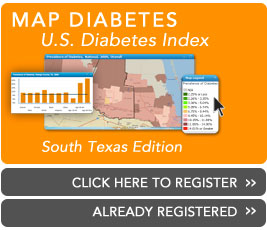Posted by Staff
News
Wednesday, March 27th, 2013
Diabetes Care: April 1, 2013
Reversal of type 2 diabetes to normal metabolic control by either bariatric surgery or hypocaloric diet allows for the time sequence of underlying pathophysiologic mechanisms to be observed. In reverse order, the same mechanisms are likely to determine the events leading to the onset of hyperglycemia and permit insight into the etiology of type 2 diabetes. Within 7 days of instituting a substantial negative calorie balance by either dietary intervention or bariatric surgery, fasting plasma glucose levels can normalize. Read more
Posted by Staff
News
Wednesday, March 27th, 2013
Diabetes Care: April 1, 2013
Methods for monitoring blood glucose (BG) levels play many essential roles in diabetes management, and one of the most important is alerting individuals to the occurrence of hypoglycemia. A growing number of individuals with diabetes are turning to the use of Diabetic Alert Dogs (DADs) for hypoglycemia detection, despite their high cost. Testimonials from DAD owners and trainers have reported in the media that the accuracy of trained canine alerts matches that of BG monitoring technology (1,2) and described other benefits attributed to DADs, including improvements in glycemic control and quality of life (QoL). Read more
Posted by Staff
News
Wednesday, March 27th, 2013
The Vindicator: March 26, 2013
AUSTIN, Texas – The rate of diabetes in Texas has been growing for years, and it’s now estimated that nearly one Texan in ten (9.7 percent) has been diagnosed with the disease. In addition, according to Richard Kropp, information specialist in the diabetes prevention and control program at the Texas Department of State Health Services, there are a half-million people who have the disease but don’t know it, along with scores of adults who are on the edge. Read more
Posted by Staff
News
Wednesday, March 27th, 2013
Johnson & Johnson: March 25, 2013
At extremely high blood glucose levels (1024 mg/dL and above), the OneTouch® Verio®IQ Meter will not provide a warning and will shut off
Milpitas, CA – LifeScan, Inc. is initiating a voluntary recall and replacement for all of its OneTouch® Verio®IQ blood glucose meters in the United States, effective immediately.
LifeScan is recalling and replacing all OneTouch® Verio®IQ Meters because at extremely high blood glucose levels of 1024 mg/dL and above, the meter will not provide a warning that the blood glucose is extremely high and will shut off, thereby potentially leading to incorrect treatment and delaying proper treatment.
The likelihood of experiencing an extremely high blood glucose level of 1024 mg/dL or higher is remote; however, when such a blood glucose level occurs, it is a serious health risk requiring immediate medical attention. Because these products do not provide an appropriate warning at glucose levels of 1024 mg/dL or higher, diagnosis and treatment of extreme hyperglycemia may be delayed or incorrect treatment may be given resulting in potentially serious health risk or fatality. Read more
Posted by Staff
News
Wednesday, March 27th, 2013
CDC: March 22, 2013
In 2010, approximately one in three U.S. adults aged ≥20 years (an estimated 79 million persons) had prediabetes, a condition in which blood glucose or hemoglobin A1c (A1c) levels are higher than normal but not high enough to be classified as diabetes (1). Persons with prediabetes are at high risk for developing type 2 diabetes, which accounts for 90%–95% of all cases of diabetes. Each year, 11% of persons with prediabetes who do not lose weight and do not engage in moderate physical activity will progress to type 2 diabetes during the average 3 years of follow-up (2). Evidence-based lifestyle programs that encourage dietary changes, moderate-intensity physical activity, and modest weight loss can delay or prevent type 2 diabetes in persons with prediabetes (2). Identifying persons with prediabetes and informing them about their increased risk for type 2 diabetes are first steps in encouraging persons with prediabetes to make healthy lifestyle changes. However, during 2005–2006, only approximately 7% of persons with prediabetes were aware that they had prediabetes (3). To examine recent changes in awareness of prediabetes and factors associated with awareness among adults aged ≥20 years, CDC analyzed data from the National Health and Nutrition Examination Survey (NHANES). Read more
Posted by Staff
News
Wednesday, March 27th, 2013
Diabetes Care: November 8, 2012
OBJECTIVE To describe the association of BMI with mortality in patients diagnosed with type 2 diabetes.
RESEARCH DESIGN AND METHODS Using records of 106,640 patients in Scotland, we investigated the association between BMI recorded around the diagnosis of type 2 diabetes mellitus (T2DM) and mortality using Cox proportional hazards regression adjusted for age and smoking status, with BMI 25 to <30 kg/m2 as a referent group. Deaths within 2 years of BMI determination were excluded. Mean follow-up to death or the end of 2007 was 4.7 years. Read more
Posted by Staff
Minority Diabetes Reports
Wednesday, March 27th, 2013
MedPage Today: March 22, 2013
Racial and ethnic disparities put some people at higher risk for diabetes than others and need to be taken into consideration in treatment decisions, patient advocates said here.
For instance, minorities have worse insulin resistance and glucose metabolism than whites, Sherita Golden, MD, director of inpatient diabetes management at Johns Hopkins University said. That means blacks and Hispanics are more likely to be obese and therefore at higher risk for diabetes.
Even recognizing such risk factors, physicians should be aware of subpopulation differences, such as the fact that Filipinos and South Asians are at greater risk for diabetes than people from other regions of the continent, she said.
Biological characteristics such as reduced beta-cell function also puts Asians at higher risk for diabetes despite lower body-mass indexes, Golden noted. Read more



























